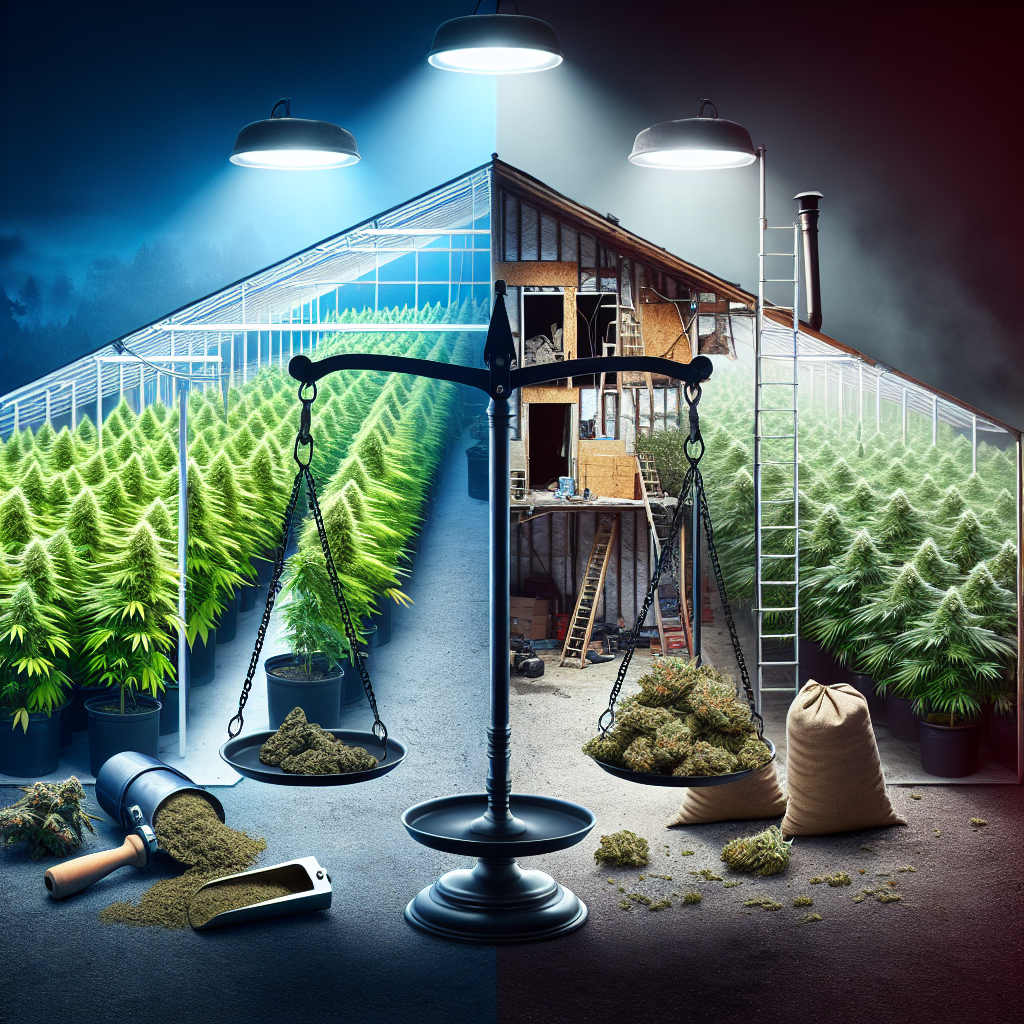
LED Tech and Legal Challenges in Cannabis Cultivation
Cannabis cultivation, both legal and illegal, continues to be a hot topic in the United States, impacting local economies, law enforcement, and community safety. Recent investigations and incidents highlight varying scenarios of cannabis involvement—from cutting-edge agricultural technology to concerning illegal grow operations.
Firstly, the introduction of advanced LED lighting technology by FOHSE is set to revolutionize cannabis cultivation. This innovation offers promise for improving sustainability and efficiency in legal cannabis production. Such advancements are vital for reducing overhead costs and enhancing growth cycles, providing a beacon of progress within the sector. (Source: Business Wire)
Conversely, the darker side of cannabis cultivation is evident in various incidents across California. In North Hollywood, a distressing encounter occurred when a 70-year-old man allegedly aimed a weapon at law enforcement officers during a raid of his residence suspected of illegal cannabis cultivation. This case underscores the dangers posed by illegal operations to communities and law enforcement alike. (Source: KTLA)
In Antioch, California, the problem is magnified with over 60 homes identified as illegal marijuana grow houses. This situation highlights a significant network, suspected of connections to organized crime, that manipulates residential properties for large-scale illegal cultivation. The adaptations made to these homes, such as extensive modifications to electricity and plumbing, present serious safety hazards, alongside broader community and economic impacts. (Source: NBC Bay Area)
Moreover, a report involving an Oakland police officer who allegedly owned a home used for illegal cannabis operations sheds light on the complex challenges within law enforcement agencies to manage these issues internally. The incident not only speaks to the complications of property ownership and legality but also to the ethical implications and the need for stringent internal oversight within police departments. (Source: Mercury News)
Finally, the Durham Fair in Connecticut reflects the societal and legislative complexities surrounding cannabis. The Fair planned to include cannabis plants in its exhibits but had to withdraw due to state regulations, demonstrating the intricate balance of educational intentions against regulatory frameworks. This scenario illustrates the ongoing dialogue around cannabis use and its acceptance within different community settings. (Source: FOX61)
These stories form a broader narrative about the state of cannabis in America today, reflecting innovation, regulation, and the dark realities of its black market. As the cannabis industry continues to evolve, it remains seen how technology, law enforcement, and community safety will interplay to shape the future of cannabis cultivation both legally and illegally.

